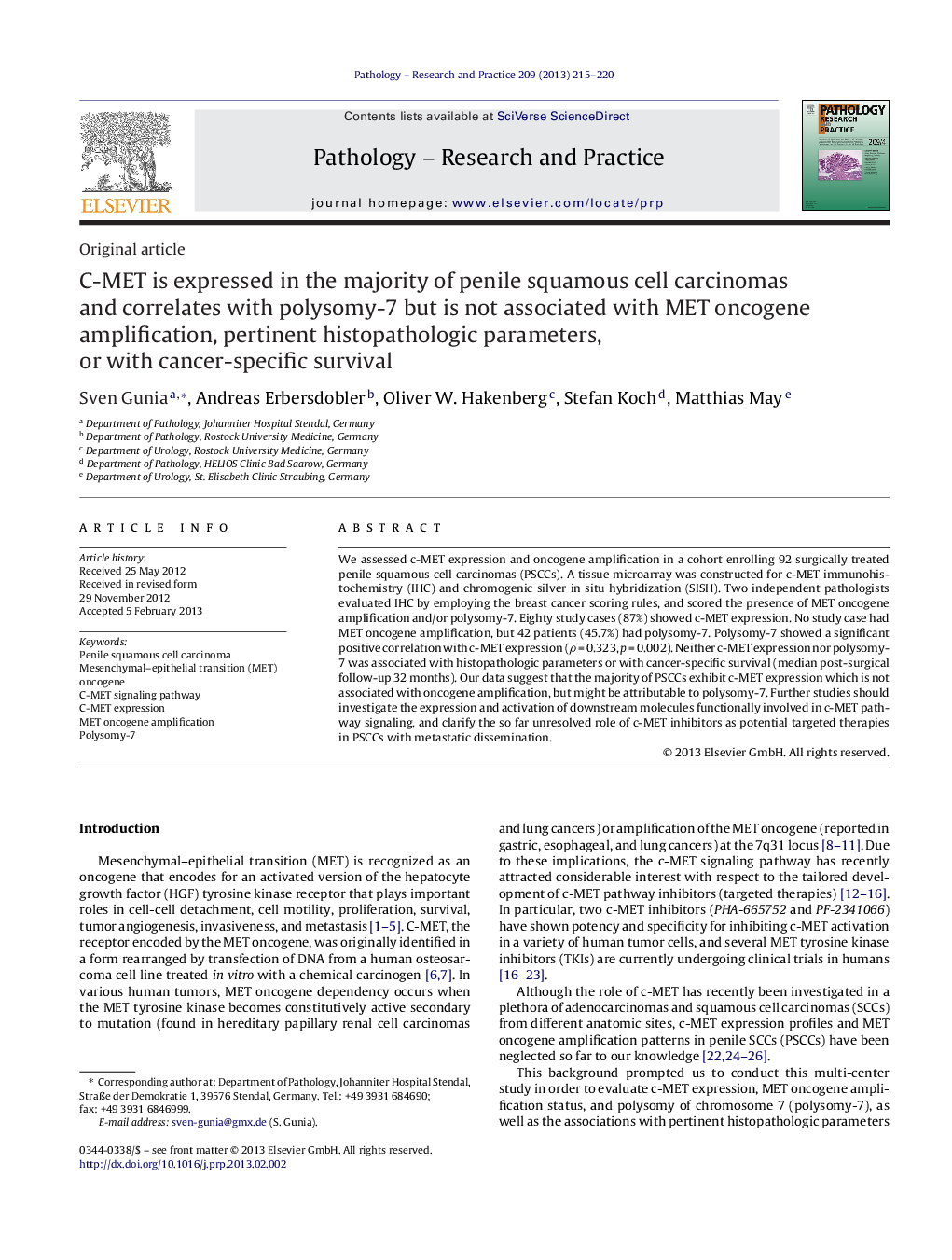| Article ID | Journal | Published Year | Pages | File Type |
|---|---|---|---|---|
| 2155686 | Pathology - Research and Practice | 2013 | 6 Pages |
We assessed c-MET expression and oncogene amplification in a cohort enrolling 92 surgically treated penile squamous cell carcinomas (PSCCs). A tissue microarray was constructed for c-MET immunohistochemistry (IHC) and chromogenic silver in situ hybridization (SISH). Two independent pathologists evaluated IHC by employing the breast cancer scoring rules, and scored the presence of MET oncogene amplification and/or polysomy-7. Eighty study cases (87%) showed c-MET expression. No study case had MET oncogene amplification, but 42 patients (45.7%) had polysomy-7. Polysomy-7 showed a significant positive correlation with c-MET expression (ρ = 0.323, p = 0.002). Neither c-MET expression nor polysomy-7 was associated with histopathologic parameters or with cancer-specific survival (median post-surgical follow-up 32 months). Our data suggest that the majority of PSCCs exhibit c-MET expression which is not associated with oncogene amplification, but might be attributable to polysomy-7. Further studies should investigate the expression and activation of downstream molecules functionally involved in c-MET pathway signaling, and clarify the so far unresolved role of c-MET inhibitors as potential targeted therapies in PSCCs with metastatic dissemination.
